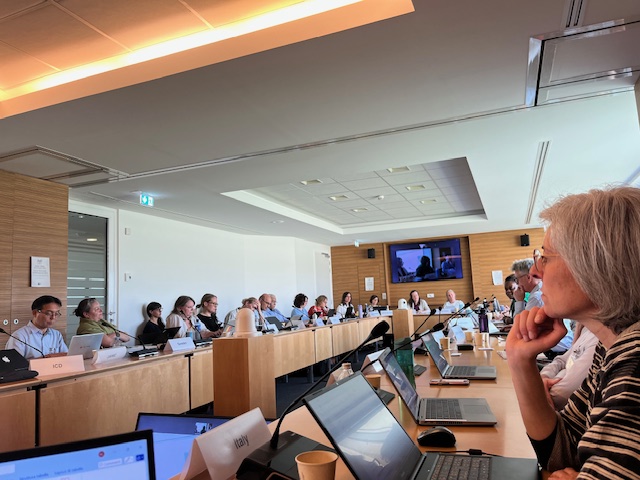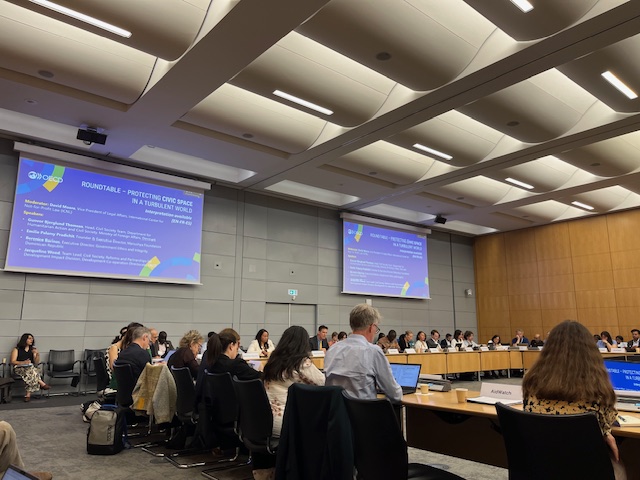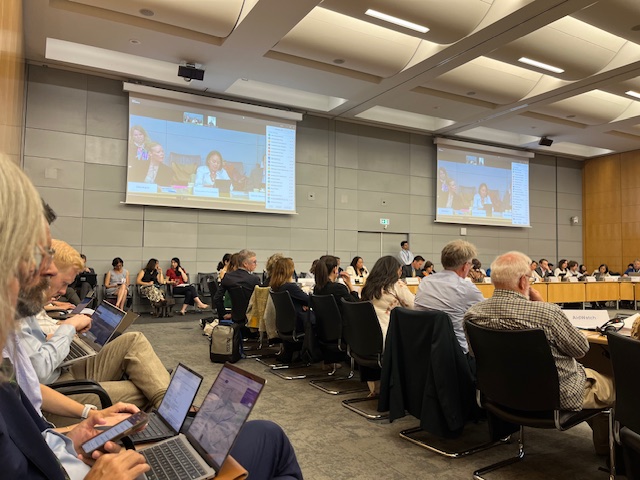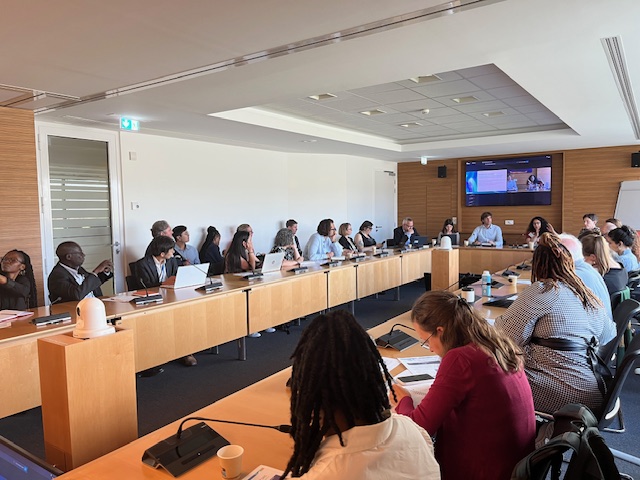The “OECD-DAC Civil Society Days” event took place in Paris, at the OECD headquarters, on June 18–19, 2025. The event was dedicated to civil society, as part of the ongoing work carried out by the OECD-DAC Community of Practice on Civil Society (DAC CoP-CS), of which AICS is a member through a team composed of officials from Office VII, in collaboration with the Emergency and Fragile States Unit.
Representing AICS in person at the packed agenda of meetings, workshops, and roundtables were Beatrice Geraci and Anna Rita Caselli from Office VII “Development Actors, Partnerships, and Development Finance.”
The event was an important opportunity to take stock of the progress made by various member states regarding the dissemination and implementation of the “OECD-DAC Recommendation on Enabling Civil Society in Development Co-operation and Humanitarian Assistance.” It also focused on identifying actions to strengthen local civil society and protect and promote civic space. This is especially relevant considering that, in July 2026, the DAC Secretariat, in collaboration with the CoP-CS and the Civil Society Reference Group (RG-CS), will draft a report on the implementation, dissemination, and relevance of the measures undertaken in the five years since the adoption of the Recommendation.
Participants reflected on how to promote and protect civic space and the need for continuous monitoring to counter its shrinking. This includes strengthening the accountability of Civil Society Organizations (CSOs), examining the interlinkages between civic space and gender equality, and assessing the effects of the broader transformation in the official development assistance landscape on civil society and civic space.
In recent decades, civic space has become increasingly constrained, with a growing number of countries introducing measures that limit the ability of civil society organizations to operate freely. The erosion of civic space is intertwined with broader trends of democratic backsliding and escalating global conflicts, which are reshaping the international development cooperation landscape. Nevertheless, CSOs remain key actors — delivering services, promoting accountability, responding to crises on the frontlines, and amplifying the voices of the most vulnerable. Enabling CSOs to thrive in increasingly restrictive environments has become an urgent priority.
Given the urgency of addressing climate challenges, the event also explored the opportunities and limitations of current governance approaches to climate change adaptation at the local level, with a particular focus on the role of civil society, community groups, and other local actors.
Finally, the Civil Society Days served as a valuable platform to share, reflect, and encourage progress on actions undertaken by governments, development cooperation agencies, civil society organizations, and other formal and informal actors on the increasingly relevant issue of locally led development.



